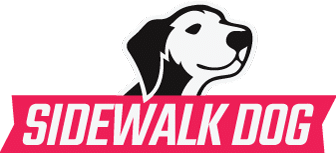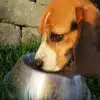When you’re the parent of dogs or cats, the cleaning process might constantly feel like a full-time job. Fur and dirt get everywhere, flooring gets scratched, food gets spilled, fur balls abound, and mud gets continually tracked in from the outdoors.
Have you ever thought about the cleaning solutions you’re using in your home when these messes happen?
Being a responsible pet parent means being aware of what dangers may exist, either inside or outside, for your beloved furry kid.
When it comes to cleaning products, it’s better to err on the side of caution and choose the ones that are pet-safe.
Why Are Cleaning Products Dangerous for Pets?
Cleaning products often contain hazardous ingredients like bleach or ammonia, which can be toxic to your pet if ingested or inhaled. Since pets are closer to the ground (or counter), they get more of the cleaner into their lungs when breathing. Also, because pets move and clean themselves differently, they’re exposed to these products more than people. Here are some reasons why.
- Dogs and cats lie on the floor or counter, then lick themselves, which causes them to ingest the cleaning chemicals.
- Their paw pads can more easily absorb the cleaning toxins as they walk around on floors or counters.
- Your pet may enjoy licking freshly cleaned surfaces, exposing them to even more dangerous chemicals.
- Your pup or kitty is so curious, they get into the cleaning supplies and give them a “taste” when they’re stored in the pantry.
So whether you have a curious pup or a clean-obsessed kitty that licks the counters, cleaning chemicals can be dangerous.
Which Cleaning Supplies are Dangerous for Your Dog?
According to the Senior Tail Waggers veterinarian, Dr. Chyrle Bonk, DVM, harmful cleaning ingredients and chemicals should be avoided and kept out of your home.
These include:
Bleach
Though common in cleaning and laundry use, this chemical can be dangerous to people as well as pets. Bleach should always be diluted when you’re using it, and if you use it in your laundry routine, be sure to keep it locked away where pets can’t get into it. Inhaling or ingesting bleach can be toxic.
Ammonia
Ammonia-based cleaners should be avoided. Ammonia smells similar to cat urine and can encourage bad habits, like urinating outside the litter box. Ammonia is also harmful to dogs and can cause respiratory distress, vomiting, nausea, and skin irritation if inhaled or ingested.
Phenols
Cleaning supplies that contain phenols should be avoided. This chemical is corrosive. If your pup or kitty inhales a phenol-based chemical, their lungs can be injured. It can also harm your pet’s skin and eyes.
Formaldehyde
This highly toxic chemical can wreak havoc on a dog’s respiratory and nervous system. It can also irritate your pup’s skin and eyes.
Chlorine
While well-balanced chlorine pools are generally safe for dogs under supervision, too much ingested chlorine can cause your pup gastrointestinal problems and skin irritation. Ear infections can also be a problem. Be sure to store chlorine tablets and chemicals away from your furry friends.
Rubbing Alcohol
This is a common household ingredient used for cleaning and medicinal purposes. In dogs, however, it can cause difficulty breathing, low blood sugar, low blood pressure, stomach upset, and a slow heart rate. It can easily be absorbed through the skin, so be sure to keep any alcohol well away from your pets.
Other harmful ingredients include phthalates, which are chemicals added for fragrance, and certain essential oils. While some essential oils are pet-friendly, like lavender, frankincense, or peppermint, ones like tea tree oil and citrus are harmful to pets.
Be sure to properly research or ask your vet before using any new ingredients, or before you try to share your natural essential oil treatments with your furry family. If you suspect your dog has ingested something poisonous, call your vet immediately.
Some signs that your dog has ingested or inhaled something toxic are:
- Vomiting,diarrhea, lack of appetite
- Lethargy
- Skin rash or burns
- Breathing issues
- Coughing/nasal issues
- Seizures
If you suspect your dog has ingested something poisonous, call your vet immediately.
Which Cleaning Supplies are Pet-Friendly?
Always check the label before choosing a cleaning product. Sometimes, the label may specify that it’s unsafe for pets. Other times, you may need to look for ingredients or caution words.
Words like “danger,” “warning,” “toxic,” or “flammable,” are signs that you should stay away from the cleaning product. Also, even if it says the product is organic or has all-natural ingredients, that doesn’t mean it’s safe for your furry. Always read the ingredients on the label to make sure nothing is listed that’s toxic to your pet.
Enzymatic Cleaners
Enzymatic cleaners can break down organic pet matter like pet urine and feces. They are also pet-safe and recommended by veterinarians. They’re safe if accidentally ingested, and enzymatic products include ones that can be used on carpets, wood floors, kennels, litter boxes, and even furniture.
Do-It-Yourself Cleaners
Some DIY cleaners that are safer to use around pets include:
- Baking soda – a mild but effective stain remover and cleaner, and an excellent odor absorber.
- Vinegar – non-toxic for pets, a great disinfectant, and can be used with lemon juice for a shiny, fresh-smelling surface.
- Lemon juice – a strong antibacterial and antifungal cleaner with a nice citrusy smell (always dilute; too much ingested citrus can cause your pup an upset stomach).
- Hydrogen peroxide – has antiseptic and antifungal properties, can function as a mild bleach, and is able to kill mold.
You can combine these inexpensive products, like baking soda with vinegar or lemon juice, to get a cleaner surface or fresher-smelling home. These natural products may not always be as effective as strong, chemical-based cleaners, but they’re much more affordable and safe for your furry family to be around.
Natural Cleaning Solutions
Natural-based cleaning products are known for being pet-safe. Some of these are:
- Seventh Generation: pet-safe laundry and dishwashing detergents.
- Eco-Me: natural, pet-safe floor cleaners for multiple surfaces.
- Method: pet-friendly, multi-purpose natural surface cleaners.
No matter which cleaning solutions you try, always be sure to check the label for any toxic ingredients. Even if it says it’s pet-friendly, it’s always safe to make sure.
Final Thoughts
In addition to checking all cleaning products for ingredients, you should always follow all cleaning solution instructions properly. Be sure to dilute the solution when needed (more solution means more toxicity and potential upset stomach). Also, dry all surfaces after cleaning before allowing your lovable puppy back into the room.
The pet-parent lifestyle has its challenges, but those friendly tail wags and puppy kisses are more than worth it! Not to mention the joy you’ll feel at seeing your dog cuddling his favorite stuffy on a clean and safe floor!

